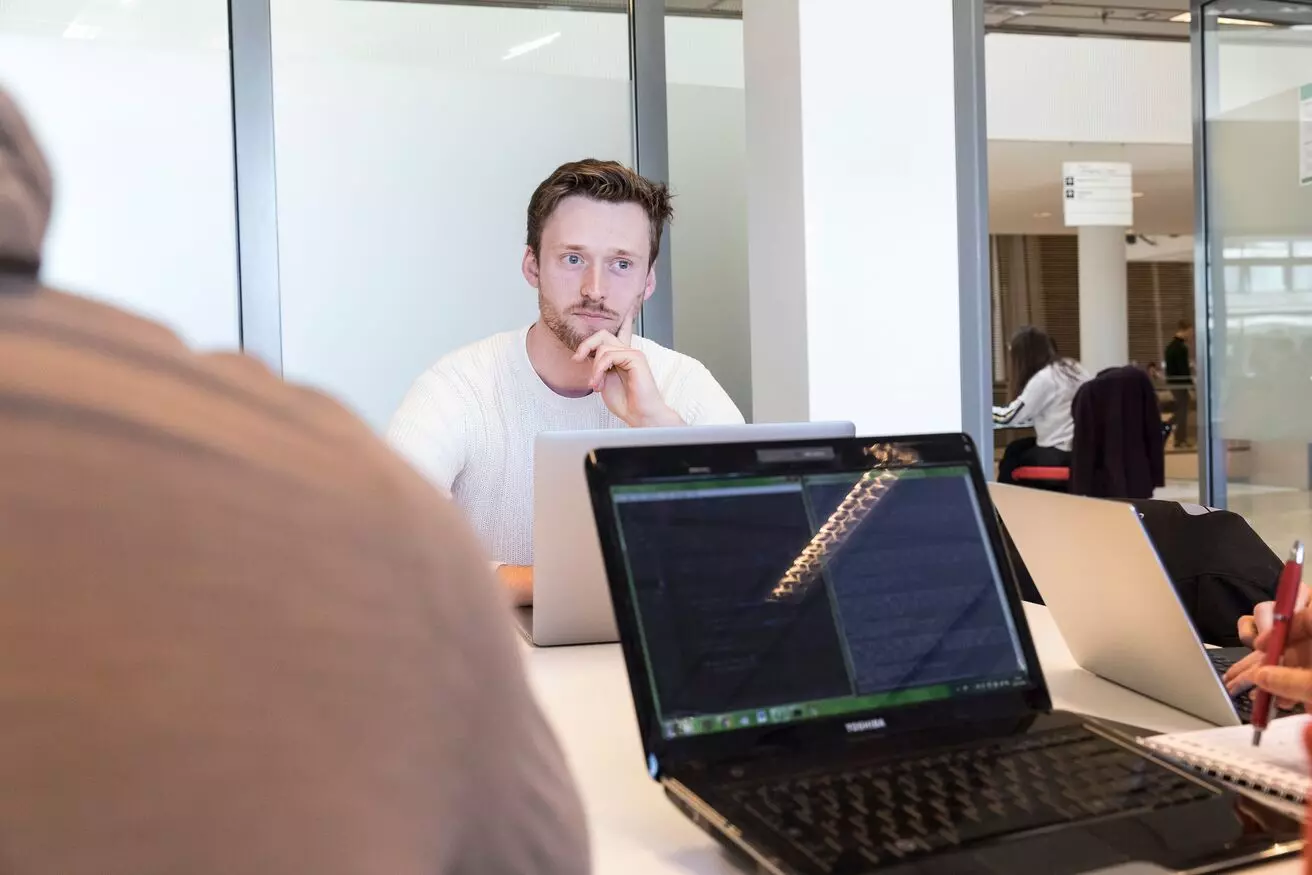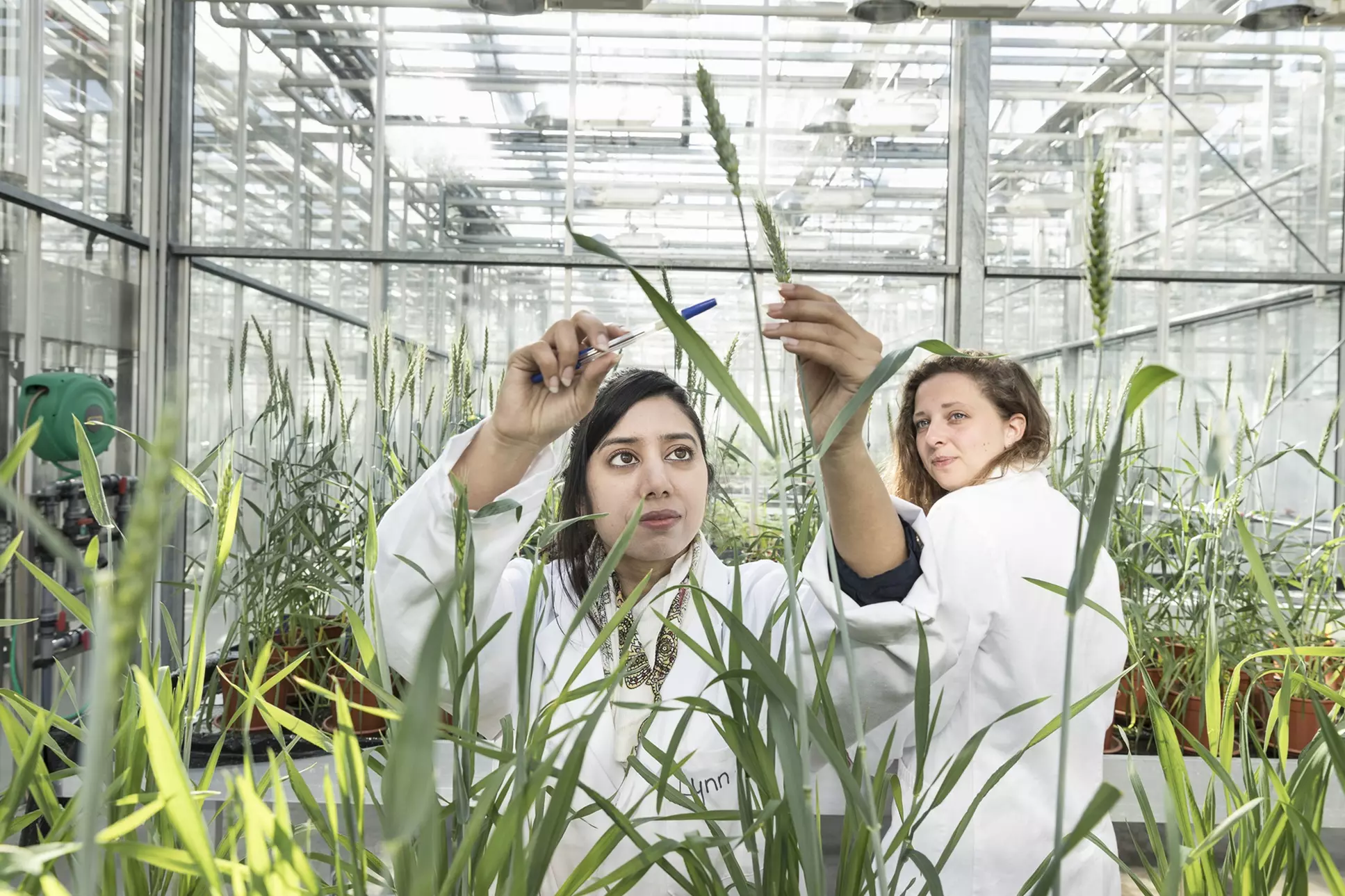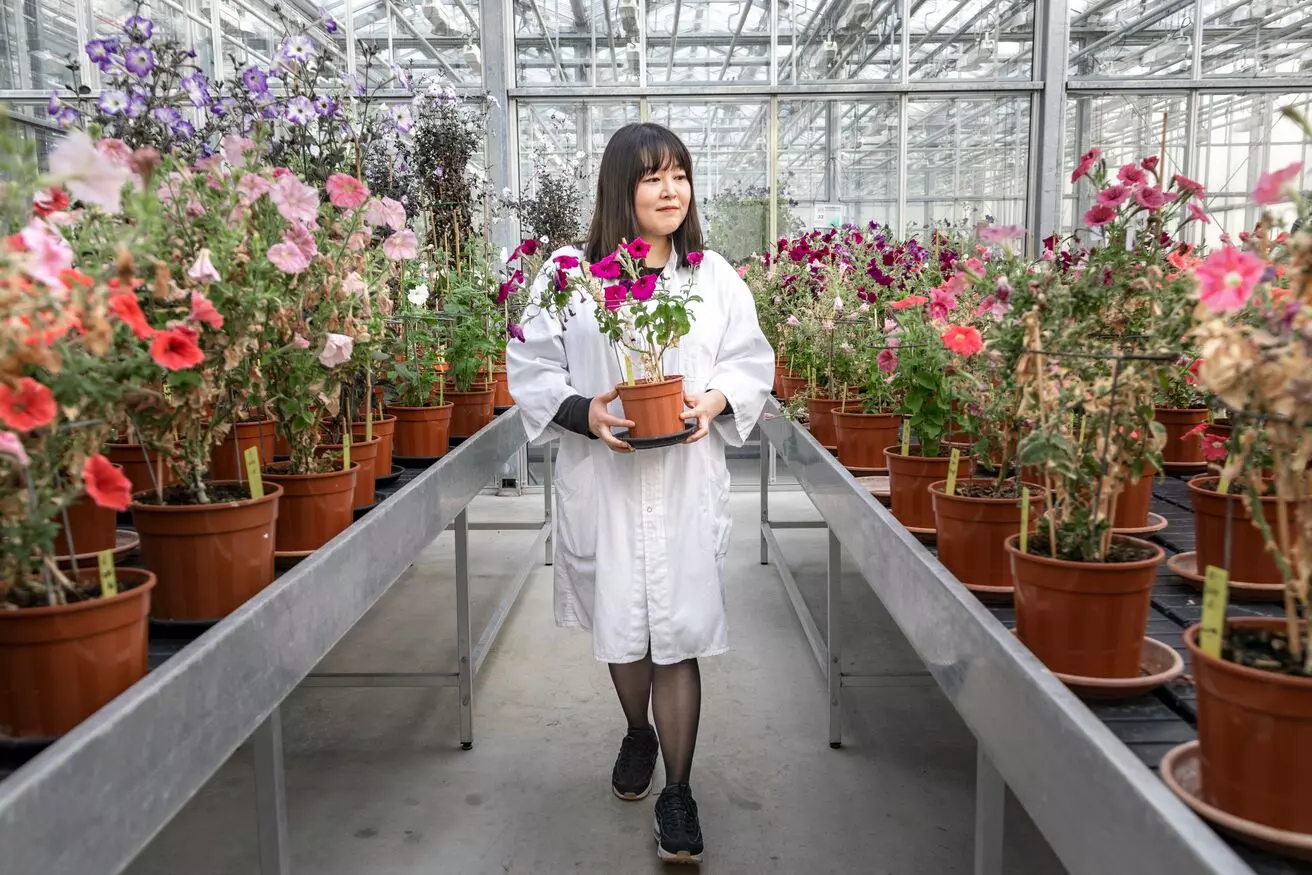
PhD on Interfaces of Intelligence: How Generative AI Reshapes Knowledge, Media, and Interpretation
- Faculty of Humanities
- 13848
- Master's
- €2.901 - €3.707
- 38 hours
- Closes on23-03-2025

PhD on Interfaces of Intelligence: How Generative AI Reshapes Knowledge, Media, and Interpretation
- Faculty of Humanities
- 13848
- Master's
- €2.901 - €3.707
- 38 hours
- Closes on23-03-2025
Working at the UvA
PhD Position: How AI is Reshaping Knowledge Production
Models (LLMs) and other generative AI systems integrate into everyday practices. Society is transitioning from an information retrieval paradigm, where search engines provide specific sources relevant to specific queries, to an interrogation and interpretation paradigm, in which knowledge is embedded within AI models through extensive, often opaque training processes and configurations. AI is also increasingly integrated into agentic systems - designed for specific contexts, goals, and degrees of autonomy - reconfiguring how knowledge is produced, validated, and operationalized across domains such as journalism, research, and education. This shift raises critical questions about authority, transparency, and the evolving role of human expertise in AI-mediated workflows.
To critically assess and learn from such shifts, our project takes a two-pronged approach: first, we examine how research methods are embedded within AI tools, adopting a digital methods perspective to explore their affordances and limitations. Second, we analyze how AI-driven software changes interfaces, influencing how users access and interact with knowledge. Both approaches aim to understand how knowledge is constructed, accessed, and made usable - both in digital research and everyday digital interactions.

Working at the UvA
PhD Position: How AI is Reshaping Knowledge Production
Models (LLMs) and other generative AI systems integrate into everyday practices. Society is transitioning from an information retrieval paradigm, where search engines provide specific sources relevant to specific queries, to an interrogation and interpretation paradigm, in which knowledge is embedded within AI models through extensive, often opaque training processes and configurations. AI is also increasingly integrated into agentic systems - designed for specific contexts, goals, and degrees of autonomy - reconfiguring how knowledge is produced, validated, and operationalized across domains such as journalism, research, and education. This shift raises critical questions about authority, transparency, and the evolving role of human expertise in AI-mediated workflows.
To critically assess and learn from such shifts, our project takes a two-pronged approach: first, we examine how research methods are embedded within AI tools, adopting a digital methods perspective to explore their affordances and limitations. Second, we analyze how AI-driven software changes interfaces, influencing how users access and interact with knowledge. Both approaches aim to understand how knowledge is constructed, accessed, and made usable - both in digital research and everyday digital interactions.
All about this vacancy
This is what you will be doing
As a PhD in the project, you will pursue your own research agenda that intersects with that of the PIs, and falls under one of the following broad categories:
- Epistemic shifts in generative AI – How does GenAI reshape processes of knowledge validation, credibility, and facticity? How do these models affect established knowledge gatekeepers institutions? How do different modes and modalities of GenAI shape its contexts of use?
- Workflow transformations in generative AI – How does GenAI reshape professional routines and decision-making in knowledge-intensive domains? How do AI-driven agentic systems, designed with specific contexts, capabilities, and goals, redefine collaboration and expertise? How do they integrate into and redefine existing software interfaces?
Your tasks and responsibilities:
- submission of a PhD thesis within the period of appointment;
- participating in meetings of the project research group and developing a shared database;
- publishing one single-authored, peer reviewed article;
- presenting intermediate research results at workshops and conferences;
- organising knowledge dissemination activities;
- participation in the Research School and Faculty of Humanities PhD training programmes.
- (co-)teaching courses at BA-level in the second and third year of the appointment (maximum 0,2 fte per year).
This is what we ask of you
Candidates need to have the following qualifications:
- a completed Master's degree in media and communication studies, critical artificial intelligence, science and technology studies. You may apply if you have not yet completed your Master's degree only if you provide a signed letter from your supervisor stating that you will graduate before 1 September 2025;
- excellent research skills demonstrated by an outstanding Master's thesis and a demonstrable capacity to develop a track record of publishing in high-ranking journals and/or with leading presses;
- a strong cooperative attitude and willingness to engage in collaborative research;
- enthusiasm for communicating academic research to non-academic audiences;
- good command of English
We are looking for a PhD candidate who can critically engage with generative AI while also exploring its practical applications. The ideal candidate is neither solely focused on critiquing AI from a distance nor unreflectively applying it without questioning its implications. Instead, we seek someone who combines critical analysis with hands-on exploration—someone who can interrogate the epistemic, social, and technical dimensions of AI while also experimenting with its affordances in digital research methods and interface studies. Please note that if you already hold a doctorate/PhD or are working towards obtaining a similar degree elsewhere, you will not be admitted to a doctoral programme at the UvA.
The candidate should be comfortable working across disciplines, bridging media and communication studies, critical artificial intelligence, and science and technology studies. The candidate should have an analytical yet open-minded approach, willing to engage with both the strengths and limitations of AI in knowledge production, dissemination, and professional workflows. Strong expository writing skills are essential, both for effectively commanding large language models and for producing clear, rigorous academic output. Prior experience with digital methods, such as data scraping and visualization, as well as a working knowledge of foundation models (understanding of their training processes and/or prompting), is highly desirable. While not mandatory, basic proficiency in programming in Python for digital analysis would be a plus.
This is what we offer you
Required:
- PhD candidates receive a tuition fee waiver;
- PhD candidates have free access to courses offered by the Graduate School of Humanities and the Dutch National Research Schools;
- excellent possibilities for further professional development and education;
- an inspiring academic and international work environment in the heart of Amsterdam;
- an enthusiastic and professional academic team.
All about this vacancy
This is what you will be doing
As a PhD in the project, you will pursue your own research agenda that intersects with that of the PIs, and falls under one of the following broad categories:
- Epistemic shifts in generative AI – How does GenAI reshape processes of knowledge validation, credibility, and facticity? How do these models affect established knowledge gatekeepers institutions? How do different modes and modalities of GenAI shape its contexts of use?
- Workflow transformations in generative AI – How does GenAI reshape professional routines and decision-making in knowledge-intensive domains? How do AI-driven agentic systems, designed with specific contexts, capabilities, and goals, redefine collaboration and expertise? How do they integrate into and redefine existing software interfaces?
Your tasks and responsibilities:
- submission of a PhD thesis within the period of appointment;
- participating in meetings of the project research group and developing a shared database;
- publishing one single-authored, peer reviewed article;
- presenting intermediate research results at workshops and conferences;
- organising knowledge dissemination activities;
- participation in the Research School and Faculty of Humanities PhD training programmes.
- (co-)teaching courses at BA-level in the second and third year of the appointment (maximum 0,2 fte per year).
This is what we ask of you
Candidates need to have the following qualifications:
- a completed Master's degree in media and communication studies, critical artificial intelligence, science and technology studies. You may apply if you have not yet completed your Master's degree only if you provide a signed letter from your supervisor stating that you will graduate before 1 September 2025;
- excellent research skills demonstrated by an outstanding Master's thesis and a demonstrable capacity to develop a track record of publishing in high-ranking journals and/or with leading presses;
- a strong cooperative attitude and willingness to engage in collaborative research;
- enthusiasm for communicating academic research to non-academic audiences;
- good command of English
We are looking for a PhD candidate who can critically engage with generative AI while also exploring its practical applications. The ideal candidate is neither solely focused on critiquing AI from a distance nor unreflectively applying it without questioning its implications. Instead, we seek someone who combines critical analysis with hands-on exploration—someone who can interrogate the epistemic, social, and technical dimensions of AI while also experimenting with its affordances in digital research methods and interface studies. Please note that if you already hold a doctorate/PhD or are working towards obtaining a similar degree elsewhere, you will not be admitted to a doctoral programme at the UvA.
The candidate should be comfortable working across disciplines, bridging media and communication studies, critical artificial intelligence, and science and technology studies. The candidate should have an analytical yet open-minded approach, willing to engage with both the strengths and limitations of AI in knowledge production, dissemination, and professional workflows. Strong expository writing skills are essential, both for effectively commanding large language models and for producing clear, rigorous academic output. Prior experience with digital methods, such as data scraping and visualization, as well as a working knowledge of foundation models (understanding of their training processes and/or prompting), is highly desirable. While not mandatory, basic proficiency in programming in Python for digital analysis would be a plus.
This is what we offer you
Required:
- PhD candidates receive a tuition fee waiver;
- PhD candidates have free access to courses offered by the Graduate School of Humanities and the Dutch National Research Schools;
- excellent possibilities for further professional development and education;
- an inspiring academic and international work environment in the heart of Amsterdam;
- an enthusiastic and professional academic team.
Your place at the UvA
This is where you will be working
The Faculty of Humanities provides education and conducts research with a strong international profile in a large number of disciplines in de field of language and culture. Located in the heart of Amsterdam, the faculty maintains close ties with many cultural institutes in the capital city. Research and teaching staff focus on interdisciplinary collaboration and are active in several teaching programmes.
Organisational unit
Your place at the UvA
This is where you will be working
This is where you will be working
The Faculty of Humanities provides education and conducts research with a strong international profile in a large number of disciplines in de field of language and culture. Located in the heart of Amsterdam, the faculty maintains close ties with many cultural institutes in the capital city. Research and teaching staff focus on interdisciplinary collaboration and are active in several teaching programmes.
Organisational unit
Important to know
Your application & contact
If you feel the profile fits you, and you are interested in the job, we look forward to receiving your application. You can apply online via the link below. We will accept applications until 23 March 2025. The expected start of the position is in October 2025. Your application should include the following information:
- a letter and full academic CV;
- a research proposal of 800-1000 words (excluding references) that describes your topic and the main conceptual lens that would inform your project;
- a writing sample, for example, a chapter from your Master thesis or an article;
- a list of all Master-level modules you have taken, with an official transcript of grades;
- the names, phone numbers, and email addresses of two academic references who may be approached by the selection committee. Preferably, one of them should be your MA thesis supervisor.
Please submit the required information in a collated single pdf by uploading in the required field ‘CV’. The first round of interviews will be held in the course of April 2025. If you have any questions about the position or the department, please contact during office hours:
- For practical questions about the position and the application process, please contact Dr. Eloe Kingma ([email protected]).
- For questions regarding the research proposal, you may contact Dr. Alex Gekker ([email protected] or Dr. Erik Borra ([email protected])
Diversity, Equity & Inclusion
Important to know
Your application & contact
If you feel the profile fits you, and you are interested in the job, we look forward to receiving your application. You can apply online via the link below. We will accept applications until 23 March 2025. The expected start of the position is in October 2025. Your application should include the following information:
- a letter and full academic CV;
- a research proposal of 800-1000 words (excluding references) that describes your topic and the main conceptual lens that would inform your project;
- a writing sample, for example, a chapter from your Master thesis or an article;
- a list of all Master-level modules you have taken, with an official transcript of grades;
- the names, phone numbers, and email addresses of two academic references who may be approached by the selection committee. Preferably, one of them should be your MA thesis supervisor.
Please submit the required information in a collated single pdf by uploading in the required field ‘CV’. The first round of interviews will be held in the course of April 2025. If you have any questions about the position or the department, please contact during office hours:
- For practical questions about the position and the application process, please contact Dr. Eloe Kingma ([email protected]).
- For questions regarding the research proposal, you may contact Dr. Alex Gekker ([email protected] or Dr. Erik Borra ([email protected])
Other interesting vacancies for you

PhD Position in Cat4Cancer
- Faculty of Science
- €2.901 - €3.707
- Closes on15-03-2025
- Master's
- 38 hours

PhD Position in Catalytic Conversion of Syngas into Fine Chemicals
- Faculty of Science
- €2.901 - €3.707
- Closes on15-03-2025
- Master's
- 38 hours

PhD researcher in Regional Human Rights Regimes
- Amsterdam Law School
- €2.901 - €3.707
- Closes on09-03-2025
- Master's
- 38 hours
Other interesting vacancies for you

PhD Position in Cat4Cancer
- Faculty of Science
- €2.901 - €3.707
- Closes on15-03-2025
- Master's
- 38 hours
.jpg)
PhD Position in Catalytic Conversion of Syngas into Fine Chemicals
- Faculty of Science
- €2.901 - €3.707
- Closes on15-03-2025
- Master's
- 38 hours

PhD researcher in Regional Human Rights Regimes
- Amsterdam Law School
- €2.901 - €3.707
- Closes on09-03-2025
- Master's
- 38 hours

Don't miss out on your dream job!

Don't miss out on your dream job!
This website uses cookies
We, and third parties, use cookies on our website. We use cookies to ensure that our website functions properly, to store your preferences, to gain insight into visitor behavior, but also for marketing and social media purposes (showing personalized advertisements). By clicking 'Accept', you agree to the use of all cookies. In our Cookie Statement. you can read more about the cookies we use and save or change your preferences. By clicking 'Refuse' you only agree to the use of functional cookies.
